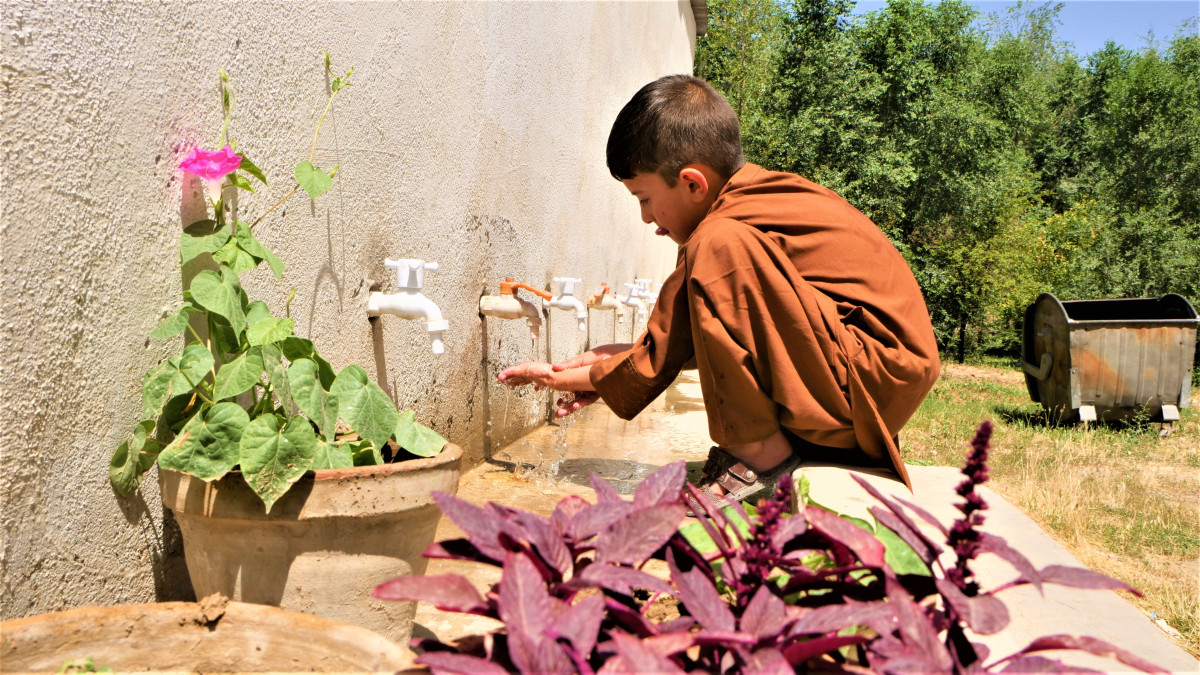Why handwashing is important for people in Afghanistan
Published: Oct 17, 2023 Reading time: 2 minutes Share: Share an articleGlobal Handwashing Day is an annual event dedicated to raising awareness about the importance of Water, Sanitation and Hygiene (WASH) and its role in preventing the spread of diseases, as well as reflecting the positive impacts of assistance across the country. Afghanistan has been ravaged by war for four decades, resulting in a lack of infrastructure, safe drinking water availability and a ruined economy. The combined effects of the war and natural shocks such as drought and earthquakes left people in Afghanistan without the means to live dignified lives. A lack of proper hygiene caused the spread of water-borne diseases, threatening the lives of the most vulnerable.

We work to incorporate hygiene awareness across our projects to ensure lasting effects beyond the project duration can be achieved. Behavioural change is the key to ensuring communities can practise hygiene measures to prevent diseases. In our Education in the Emergency project (EiE) and with support from UNOCHA – Afghanistan Humanitarian Fund (AHF), we have provided Water, Sanitation and Hygiene (WASH) Kits to over 9,555 Community-Based Education Classes (CBE) students and 280 teachers across Kabul Province, coupled by hygiene awareness sessions.
Better personal and environmental hygiene
Ramadan Niazi (27 years old), one of 120 CBE teachers, says: “Here almost all school-aged children who were deprived of schooling due to either lack of public schools or long distances were rescued from illiteracy. People in Need not only provided education to the children and capacity building for the teachers but also included hygiene as a core component of their action. They involved children, parents and teachers to ensure the whole community was involved.” Before the project, many children suffered from diarrhoea due to poor hygiene and a lack of items.
However, after our interventions, most of the children know about their personal hygiene; they regularly wash their hands, and they understand the importance of health, cleanliness, and the times of washing hands like before eating, after eating, before playing outside or touching something, and after using the toilet. Ramadan also says that the rehabilitation and construction of toilets have contributed to better personal and environmental hygiene.
Over 6.2 Million People received at least one WASH service in Afghanistan
As per the HRP, there are more than 21 million individuals in need of WASH support, showing a massive need to support a water, sanitation and hygiene response. Further, the issue of having female staff deployed at the field level has decreased the capacity to reach women and girls with targeted menstrual health and hygiene. PIN is keeping a principled approach and implementing projects only if and when the female staff can be deployed in the targeted locations.



